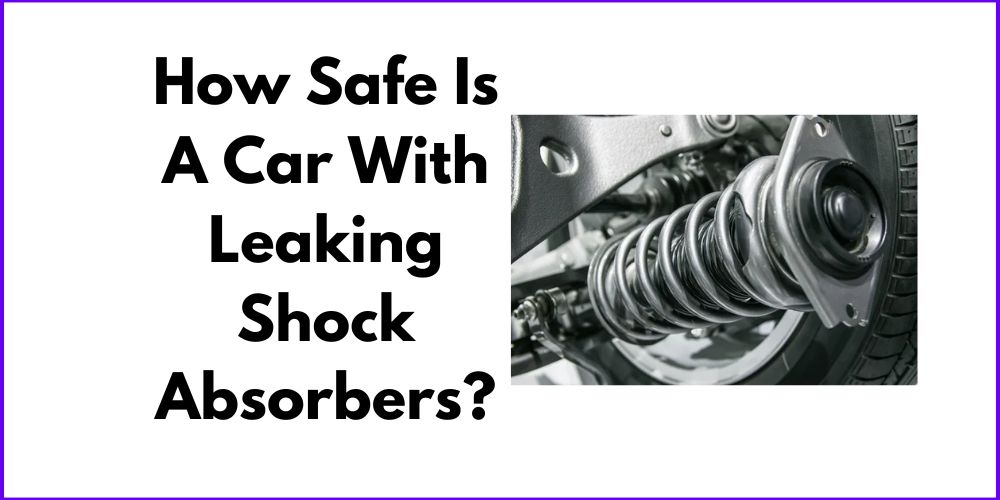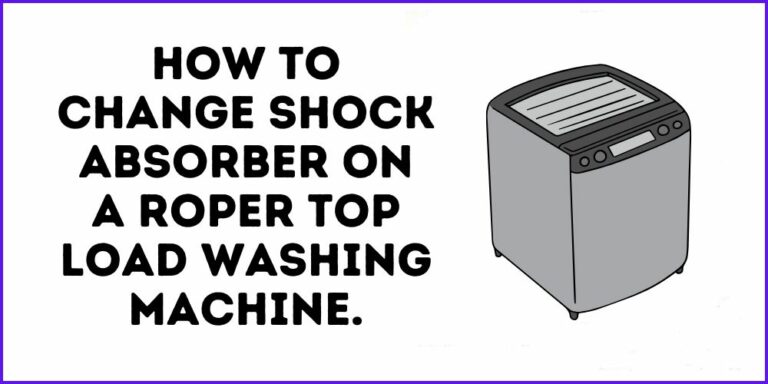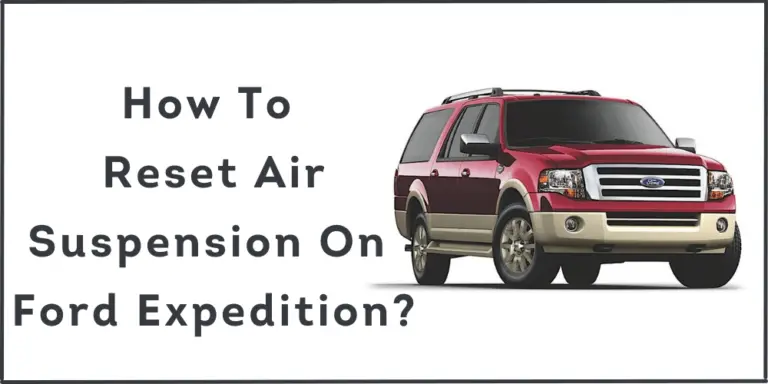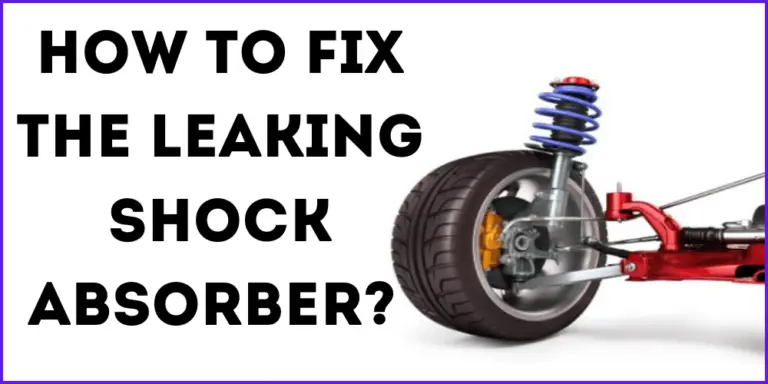When it comes to car safety, there are many factors that drivers need to consider. The shock absorbers are a crucial component that significantly ensures a safe and smooth ride.
Shock absorbers are responsible for controlling the movement of the suspension system, keeping the tires in contact with the road surface, and minimizing vibrations caused by uneven terrain.
However, what happens when these critical components start to leak? This article will explore the safety implications of driving a car with leaking shock absorbers and provide insights into the potential risks involved.
How Safe Is A Car With Leaking Shock Absorbers?
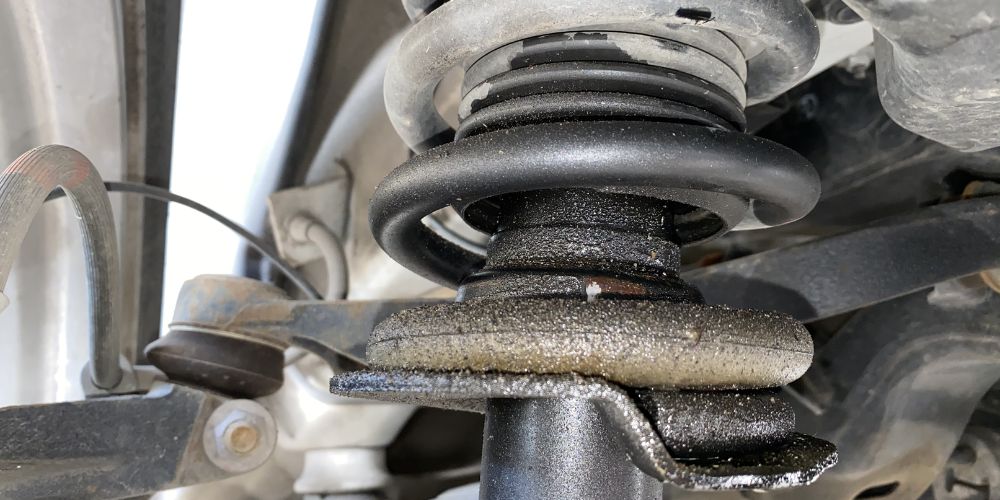
Driving a car with leaking shock absorbers poses significant safety risks. Leaking shock absorbers compromise vehicle handling, increase braking distances, reduce tire grip and traction, and accelerate wear on other suspension components. Promptly addressing this issue through professional assistance and regular maintenance is essential to ensure safe driving and prevent potential accidents. Prioritizing the safety of yourself and others on the road by addressing leaking shock absorbers is crucial.
5 Signs of Leaking Shock Absorbers
Leaking shock absorbers are a common issue that can occur over time due to wear and tear or external factors such as road conditions. It is essential for drivers to be aware of the signs indicating potential shock absorber leaks. Some common symptoms include:
- Excessive bouncing: If your car continues to bounce excessively after hitting a bump or a pothole, it could be a sign of leaking shock absorbers. The lack of damping caused by the leak allows the suspension to oscillate freely, leading to a bouncy ride.
- Uneven tire wear: Leaking shock absorbers can result in uneven wear patterns on your tires. When the shock absorbers are unable to maintain consistent tire contact with the road, certain areas of the tire may experience more friction and wear faster than others.
- Reduced stability and control: When shock absorbers are in optimal condition, they help keep the vehicle stable and improve handling. However, if they are leaking, the stability and control of the car can be compromised. Steering may feel loose, and the car may sway or roll more when going around corners.
- Increased braking distance: Leaking shock absorbers can negatively affect braking performance. When the suspension is not effectively controlled, weight transfer during braking becomes less predictable, resulting in a longer braking distance.
- Fluid leakage: Visual inspection can reveal fluid leakage from the shock absorbers. If you notice oil stains or wetness around the shock absorber area, it clearly indicates a leak.
6 Safety Implications of Leaking Shock Absorbers
Driving a car with leaking shock absorbers poses several safety risks that every driver should be aware of. Here are some of the potential consequences:
- Reduced tire contact with the road: Leaking shock absorbers can lead to inconsistent tire contact with the road surface. This can result in reduced traction, especially during emergency maneuvers or in wet and slippery conditions. The loss of traction increases the risk of skidding and loss of vehicle control.
- Extended braking distance: As mentioned earlier, leaking shock absorbers can affect braking performance. The longer braking distance required to bring the vehicle to a stop can be critical in emergency situations, where every inch counts. This delay in stopping distance could lead to accidents or collisions.
- Compromised handling and stability: Shock absorbers play a vital role in maintaining vehicle stability and handling. When they are leaking, the suspension system becomes less effective in controlling the vehicle’s movements. This can result in increased body roll, reduced responsiveness to steering inputs, and compromised stability during sudden lane changes or evasive maneuvers.
- Increased wear on other suspension components: Leaking shock absorbers can place additional stress on other suspension components. Excess movement and vibrations can accelerate wear on bushings, ball joints, and other critical parts of the suspension system without proper damping. This can lead to further safety issues and costly repairs.
- Driver and passenger discomfort: In addition to the safety implications, driving a car with leaking shock absorbers can be an uncomfortable experience. Excessive bouncing and vibrations can cause fatigue, backaches, and discomfort for both the driver and passengers.
FAQs on Car With Leaking Shock Absorbers
Can I still drive my car with leaking shock absorbers?
It is strongly advised against. Leaking shock absorbers compromise the safety, handling, and overall performance, and it is best to have them inspected and repaired by a qualified mechanic as soon as possible.
How long can I drive with leaking shock absorbers before getting them fixed?
The duration you can drive with leaking shock absorbers depends on the severity of the leak and the driving conditions. However, it is always recommended to address the issue promptly. Continuing to drive with leaking shock absorbers can damage the suspension system and other components, potentially resulting in more expensive repairs.
Can leaking shock absorbers cause other problems with the car?
Yes, leaking shock absorbers can cause additional problems. The excess vibrations and movements caused by leaking shock absorbers can accelerate wear on other suspension components, leading to premature failure. This can result in a more extensive and costly repair job.
How much does it cost to repair leaking shock absorbers?
The cost of repairing leaking shock absorbers can vary depending on several factors, including the vehicle’s make and model, the damage’s extent, and the labor rates in your area. It is best to consult with a trusted mechanic for an accurate estimate.
Can I replace the shock absorbers myself?
A: While it is technically possible to replace shock absorbers yourself if you have the necessary tools and experience, it is generally recommended to have a professional mechanic perform the replacement. Shock absorbers are critical safety components, and improper installation can lead to further issues or potential accidents.
Are there any DIY temporary fixes for leaking shock absorbers?
Attempting any temporary fixes for leaking shock absorbers is not recommended. The damping function of shock absorbers cannot be effectively replicated with makeshift solutions. It is always best to have them inspected and repaired by a qualified professional.
Final Words
Driving a car with leaking shock absorbers is unsafe and can have significant implications for the driver and passengers. Leaking shock absorbers compromise tire contact with the road, braking performance, handling, and overall stability.
They can also cause increased wear on other suspension components, leading to further safety concerns and costly repairs.
It is crucial to promptly address shock absorber leaks by consulting a qualified mechanic and doing the necessary repairs.

